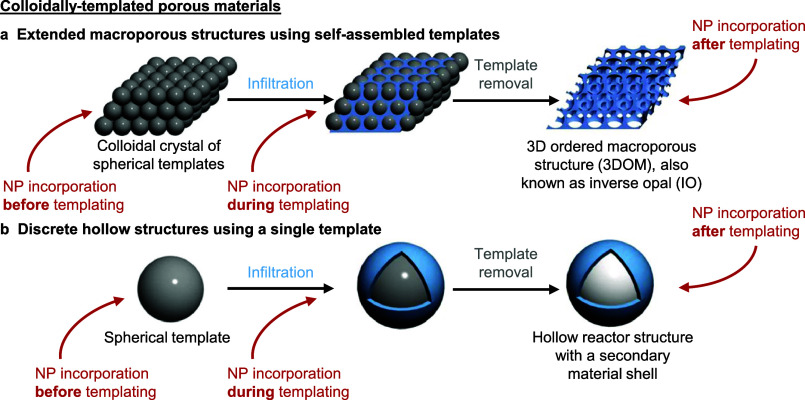Figure 2.
Two general colloidal templating approaches to produce porous structures for catalysis. Colloidal templating entails the (a) infiltration or (b) overgrowth of a second material, typically the catalytic support (blue), around (a) a colloidal crystal of self-assembled templates or (b) a discrete template (gray). Subsequent template removal reveals (a) an extended 3D macroporous structure or (b) a discrete hollow structure. In both types of colloidal templating, catalytically active NPs can be incorporated before, during, or after the colloidal templating process (red arrows). (a)–(b) adapted with permission from ref (28). Copyright 2012 American Chemical Society.

